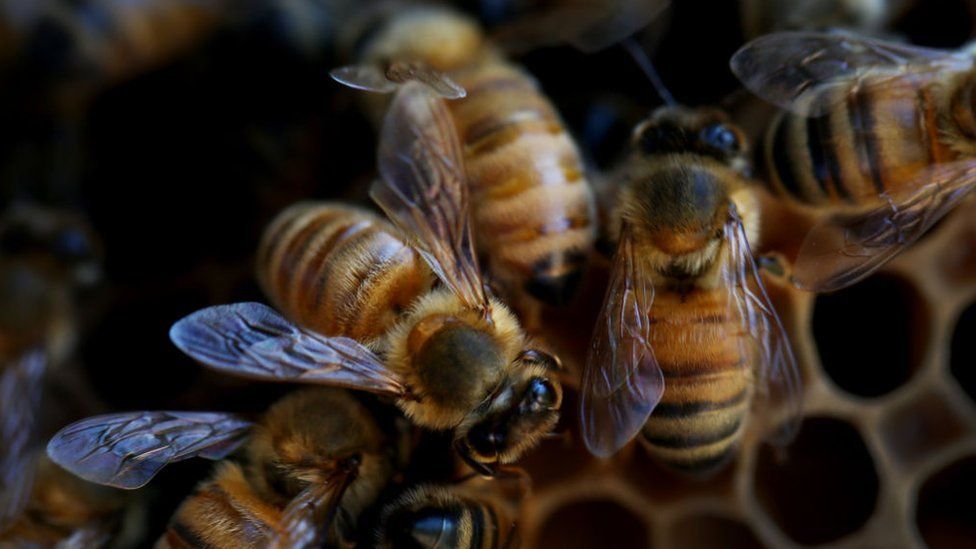
Imagine a world without honey bees. It’s a scary thought considering their crucial role as pollinators in our ecosystem. Thankfully, there’s good news on the horizon. The US has just approved the world’s first vaccine for declining honey bees. Developed by biotech firm Dalan Animal Health, the vaccine is designed to combat American foulbrood disease, a bacterial condition that weakens bee colonies by targeting bee larvae. By introducing inactive bacteria into the queen’s diet, the vaccine provides immunity to the disease for future generations of bees. This breakthrough could have a significant impact on preserving bee populations and protecting crops that rely on pollination. The anticipation for the vaccine’s availability among beekeepers and farmers is palpable, as its success could mean a brighter future for honey bees and our food system.
US Approves World’s First Vaccine for Declining Honey Bees
Overview of the vaccine approval
The US Department of Agriculture (USDA) has recently granted a conditional license for the world’s first vaccine for honey bees. This groundbreaking vaccine aims to combat American foulbrood disease, a bacterial condition that has been devastating honey bee colonies and threatening their populations. The vaccine’s approval marks a significant milestone in the efforts to protect honey bees and preserve their crucial role in our ecosystem.
Importance of honey bees in the ecosystem
Honey bees are vital pollinators that play a critical role in the ecosystem and agriculture. They are responsible for pollinating a third of the world’s crop production, including fruits, vegetables, and nuts. Without honey bees, our food supply and the diversity of plant life would be greatly compromised. The decline in honey bee populations poses a serious threat to global food security and biodiversity.
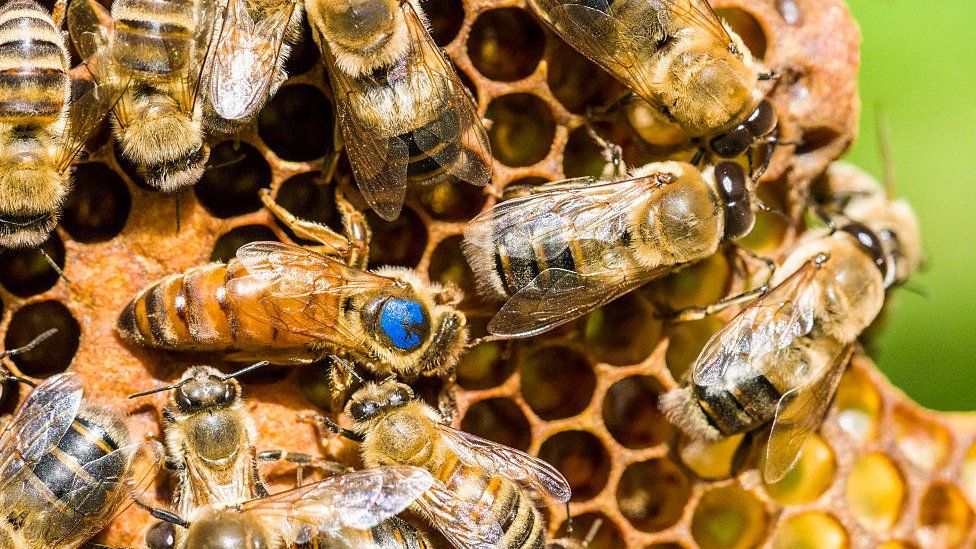
This image is property of ichef.bbci.co.uk.
Causes of declining honey bee colonies in the US
Since 2006, the United States has been witnessing a steady decline in honey bee colonies. There are several factors contributing to this alarming trend, including parasites, pests, diseases, and Colony Collapse Disorder (CCD). CCD occurs when worker bees abandon their hive, leaving behind the queen. This abandonment leads to the collapse of the entire colony. The complex and overlapping causes of declining honey bee populations highlight the urgent need for effective solutions to protect and restore their colonies.
Introduction to American foulbrood disease
American foulbrood disease is one of the most significant threats to honey bee colonies. It is a highly contagious bacterial infection that primarily affects bee larvae. Once infected, the larvae die, weakening the overall colony. The disease spreads rapidly and has devastating effects on both individual bees and entire colonies. Current treatment methods involve burning infected colonies and using antibiotics to prevent the disease from spreading. However, these methods are not always effective and can be costly for beekeepers.
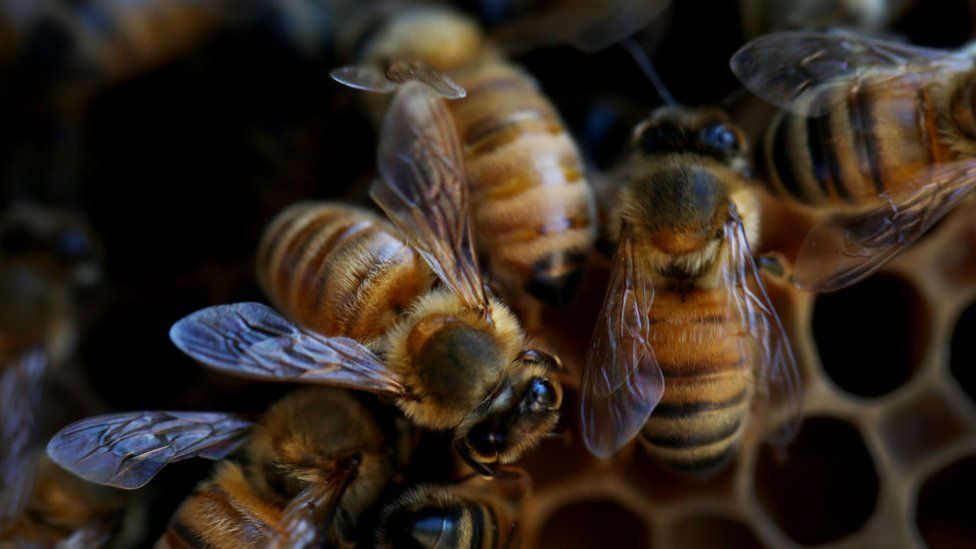
This image is property of ichef.bbci.co.uk.
Challenges posed by American foulbrood disease
American foulbrood disease poses several challenges for beekeepers. Firstly, it is highly contagious, making it difficult to contain and prevent its spread within colonies. Secondly, the disease has no cure, which means affected colonies and their equipment often need to be destroyed, resulting in significant losses for beekeepers. Finally, the constant threat of American foulbrood disease adds stress and uncertainty to beekeeping operations, making it harder for beekeepers to maintain healthy and thriving colonies.
Details of the new vaccine
The newly approved vaccine for honey bees is a promising breakthrough in the fight against American foulbrood disease. Developed by the biotech firm Dalan Animal Health, the vaccine contains inactive bacteria responsible for causing the disease. These inactive bacteria are incorporated into the royal jelly feed given by worker bees to the queen bee. When the queen ingests this feed, she gains immunity to the disease, passing on this immunity to her larvae as they hatch. This innovative approach holds tremendous potential for protecting honey bee colonies from the devastating effects of American foulbrood disease.
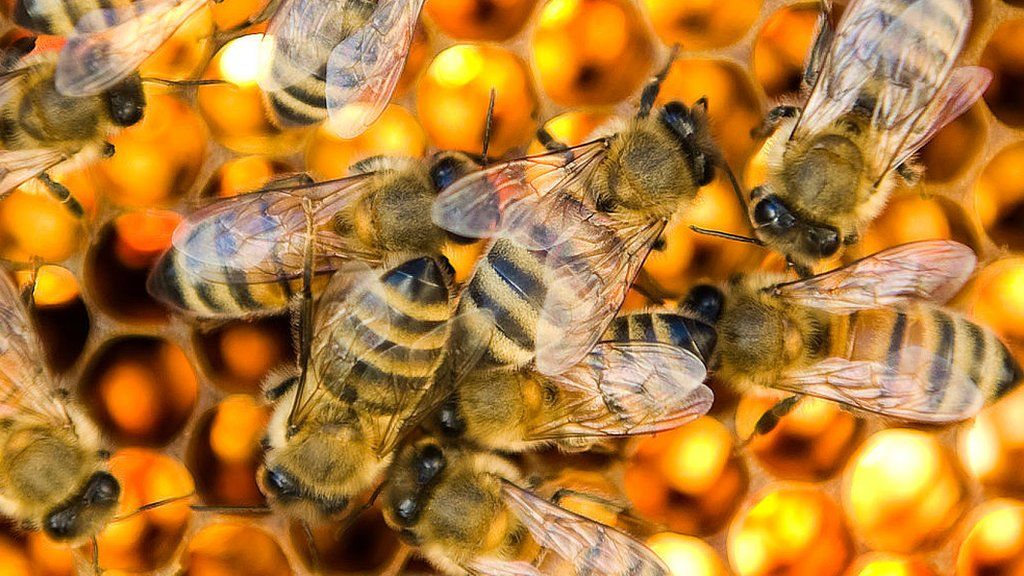
This image is property of ichef.bbci.co.uk.
Mechanism of action of the vaccine
The vaccine’s mechanism of action revolves around stimulating the immune response of honey bees against American foulbrood disease. By introducing inactive bacteria into the bee colony’s feeding cycle, the vaccine triggers the development of immunity against the disease. queen bees, whose larvae are particularly vulnerable to the infection, play a crucial role in this process by acquiring and passing on immunity to their offspring. This targeted immune response offers a promising solution to combatting American foulbrood disease and preventing its devastating consequences.
Potential benefits of the vaccine for beekeepers
The approval of the honey bee vaccine holds significant benefits for beekeepers across the United States. By protecting bee colonies from American foulbrood disease, the vaccine offers the opportunity to reduce the need for costly treatments and interventions. Beekeepers can allocate their resources towards other essential aspects of maintaining healthy colonies, increasing efficiency, and improving overall beekeeping practices. The vaccine’s potential to safeguard honey bee populations is a cause for optimism within the beekeeping community.

This image is property of ichef.bbci.co.uk.
Distribution plans for the vaccine
Dalan Animal Health plans to distribute the honey bee vaccine on a limited basis to commercial beekeepers. This strategic approach ensures that the vaccine reaches the beekeepers who are most responsible for the management and care of large honey bee colonies. By prioritizing commercial beekeepers, the vaccine’s impact can be maximized, protecting a significant portion of the honey bee population in the United States. It is expected that the vaccine will be available for purchase in the US later this year, providing beekeepers with a valuable tool in their fight against American foulbrood disease.
Conclusion
The approval of the world’s first vaccine for declining honey bees marks a significant milestone in honey bee conservation efforts. Honey bees are essential pollinators that contribute to global food security and ecosystem health. The devastating effects of American foulbrood disease have called for urgent action to protect honey bee colonies and mitigate the decline in their populations. With its innovative approach and potential benefits for beekeepers, the honey bee vaccine offers hope for the future of honey bees. By safeguarding these vital pollinators, we are ensuring the resilience and sustainability of our ecosystems and agriculture.
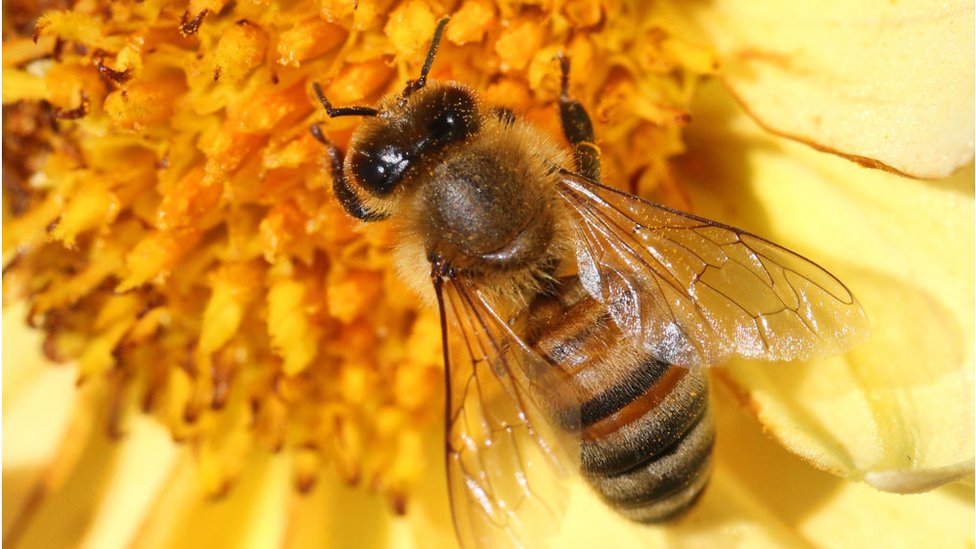
This image is property of c.files.bbci.co.uk.